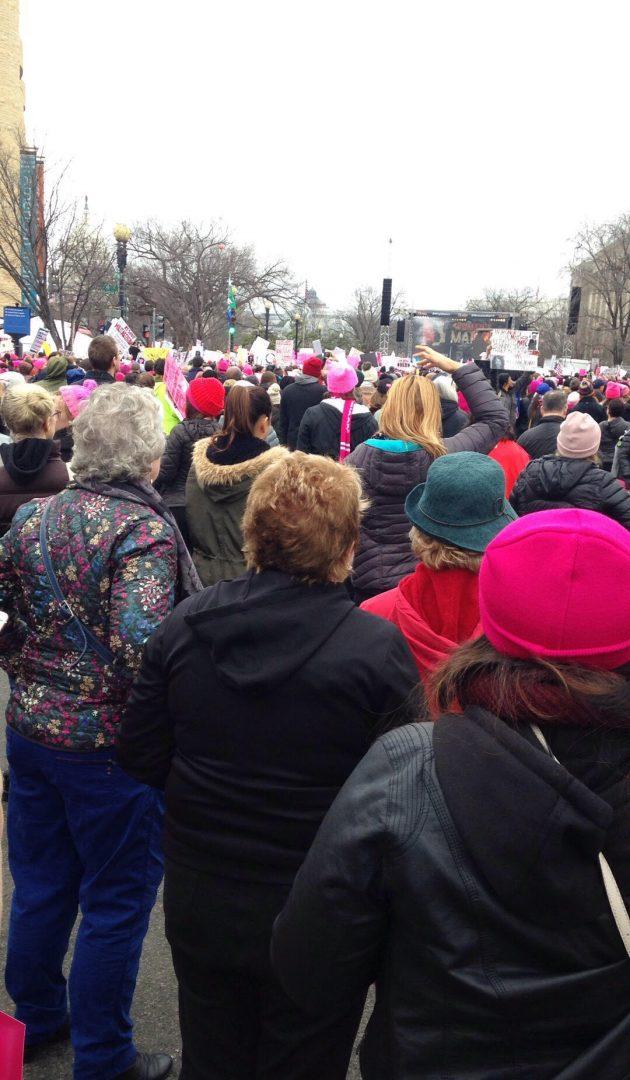Fresno State student Joey Gomez, 40, and Fresno State graduate Kristin Lacey, 24, happened to be at the same place, at the same time, doing the same thing — raising their voices.
Both women alumna attended the Women’s March in Washington, D.C. on Jan. 21. The march was organized for people to express their thoughts on current government issues.
It took Gomez only a couple of hours to learn about the Women’s March, do some research, decide she wanted to march and book the flight to D.C.
Gomez is senior at Fresno State and a family food science major. She said she wanted to protest inequality in the Central Valley.
“I started seeing the different reasons why people were going, and for some reason, I felt compelled. Like I felt like the money for the flight was a lot of money for my family, but in 50 years, who cares how much it would cost to get there,” Gomez said. “I knew that I wanted to be part of that experience, so that way I can share it with my kids and my grandkids and my great-grandkids. To talk about how I was really part of it and how I wanted the change.”
Gomez grew up in Firebaugh, where she witnessed a lot of poverty. This issue today really hits home for her.
“I know that a lot of people are saying right now that, ‘You’re not oppressed, why do you care?’ Because 50 years ago, those were the things that were happening to my family. And, so, 50 years ago when this was happening, people were fighting with them,” Gomez said. “So right now I say to myself it might be fine for me, but it’s not fine for a lot of people.”
Lacey said she was marching to address issues not only for her, but for others, as well. Some of those issues include Islamophobia, police brutality, lesbian, gay, bisexual and transgender rights and women’s reproductive rights.
She hopes the march sent a message that people are expecting more than what is currently available and won’t accept inequality.
“I march in the hope that my actions will benefit someone years from now or my children or grandchildren in the hopes that something will improve and they will look back and think that this was a historical movement,” Lacey said.




